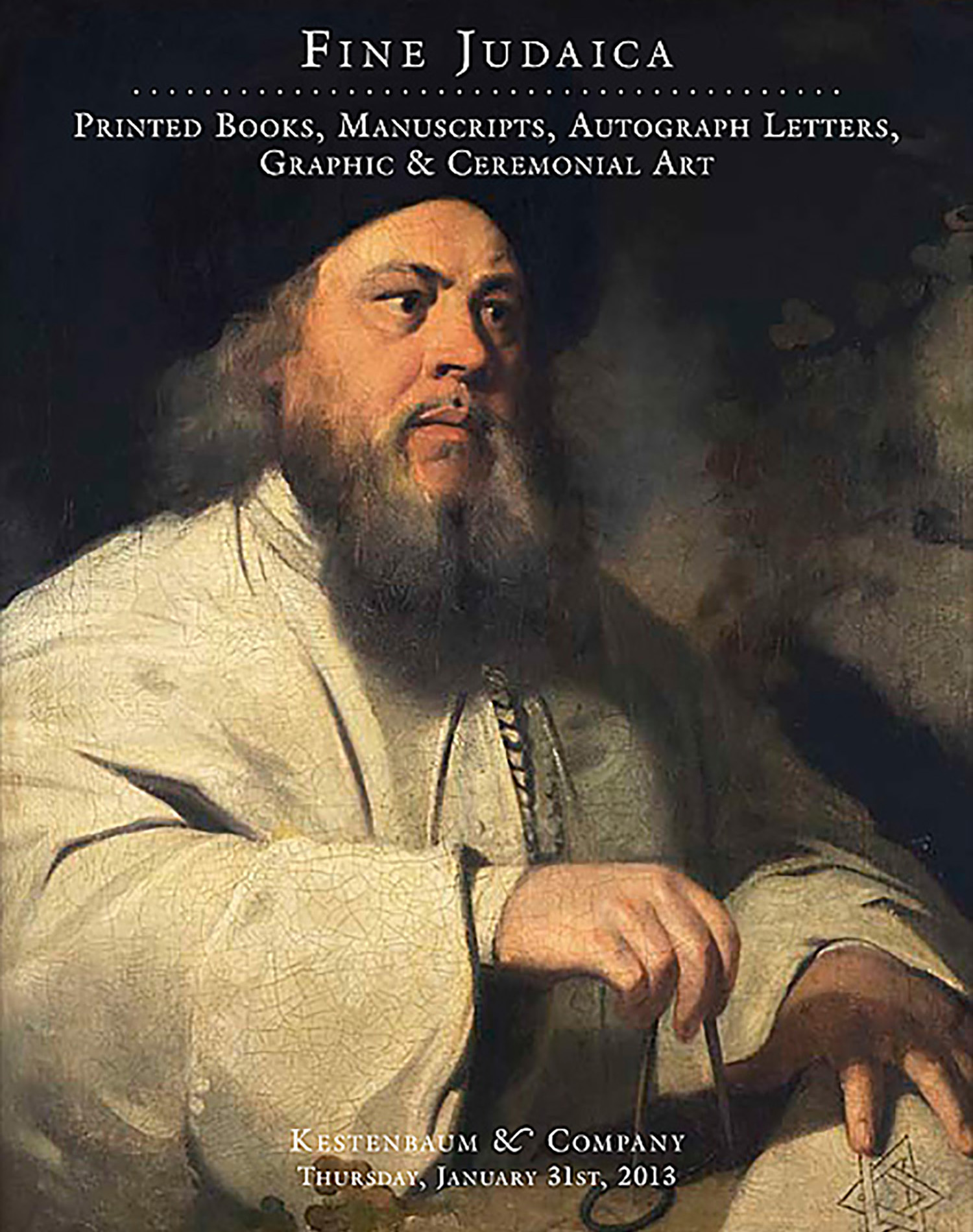(Beth Moed): Sha’ar HaPesach, Yetziath Mitzrayim, Sephirath Ha’Omer, Shavu’oth, Bein HaMetzarim, Rosh HaShanah, Yom Kippurim, Sukkoth [Kabbalistic teachings and Kavanoth for the Holidays emanating from from the Lurianic School]

AUCTION 57 |
Thursday, January 31st,
2013 at 1:00
Fine Judaica: Printed Books, Manuscripts Autograph Letters, Graphic & Ceremonial Art
Lot 259
(KABBALAH)
(Beth Moed): Sha’ar HaPesach, Yetziath Mitzrayim, Sephirath Ha’Omer, Shavu’oth, Bein HaMetzarim, Rosh HaShanah, Yom Kippurim, Sukkoth [Kabbalistic teachings and Kavanoth for the Holidays emanating from from the Lurianic School]
(Jerusalem): Early 19th-century
Est: $2,000 - $3,000
PRICE REALIZED $4,250
<<AN INTERESTING COMPILATION AND RECENSION OF LURIANIC TEACHINGS CONCERNING THE festivals WITH IMPORTANT MARGINAL NOTES BY R. YEDIDIAH ABOULAFIA.>>
The dissemination of the Kabbalistic teachings of R. Isaac Luria (The AR”I Za”L), follows a convoluted route. The primary heir to his spiritual legacy and the most reliable interpreter of Lurianic Kabbalah was R. Chaim Vital. The texts recorded by R. Chaim Vital have the reputation for being the most authoritative. However, different versions exist among Vital’s writings. (See Scholem’s brief, though masterful survey of the complicated history of Vital’s literary output, EJ, Vol. XVI cols. 171-76).
The present manuscript contains various versions of the material concerning the Festivals. The text is similar to the version found in Machbereth Hakodesh (Koretz, 1786), although it contains many additional notes and comments signed “ASH’L.” In other places it follows recensions such as Pri Etz Chaim - also with variances. In addition to citations from “Mori” (the Arizal) and Vital, the manuscript also contains additions and notes citing E. Panzieri (f. 20, 28), Nathan Shapiro, Menachem Azaria of Fano, Meir Poppers, Tosfoth Etz Chaim, Likutei HaChaveirim (the colleagues of R. Chaim Vital), Yaakov Zemach, R. Gedaliah HaLevi and others. In Kitvei Yad BeKabbalah (1930) pp. 126-127, no. 67, Scholem records a similar such manuscript with important additions and notes by many of the individuals noted above.
The author of many of the marginal notes, R. Yedidiah Aboulafia (1807-69) was one of the most prominent Kabbalists of Jerusalem, director of the mystically-oriented Yeshivah Beth El. According to Frumkin and Rivlin in Toldoth Chachmei Jerusalem (part 3, ch. 8, pp. 296-7), Aboulafia taught Kabbalah to many of the great Aschkenazi scholars of Jerusalem such as R. Meir Auerbach (author of Imrei Binah), R. Ya’akov Leib Levy (author of Beth Le’Avoth) and Elazar Mendel Biederman son of R. Moshe of Lelov. See introduction to Kinyan Peiroth (1988) pp. 12-17 cited in S. Wanunu, Arzei HaLevanon pp. 755-58. See also Y. Avivi, Kabbalath Ha’Ari Vol. II, p. 900.
